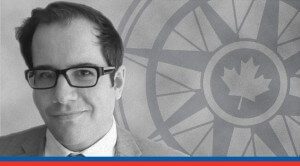 Rates of terrorism peaked in 2014 and have barely crested since. Alex Wilner asks in Sun papers: What’s driving these high rates of terrorism?
Rates of terrorism peaked in 2014 and have barely crested since. Alex Wilner asks in Sun papers: What’s driving these high rates of terrorism?
By Alex Wilner, Feb. 16, 2017
The global terrorism picture is grim.
Rates of terrorism peaked in 2014 and have barely crested. For the past two years in a row, over 25,000 people have been killed by terrorism around the world. This is unprecedented.
To put this number into perspective: when al Qaeda launched the 9/11 attacks in 2001, only 6,000 people died in terrorism that year, and half of them on that fateful September day in the United States.
Until recently, 9/11 was an anomaly. Now, every year is an anomaly.
Importantly, much of this terrorism – as much as 70% – occurs in just five countries: Iraq, Syria, Afghanistan, Nigeria, and Pakistan. This means that the vast majority of terrorism still occurs overseas, far away from Canada’s borders.
However, there’s a second worrying trend. Terrorism here in the West has also risen.
The Organization for Economic Co-operation and Development (OECD) is a group of 34 democracies that includes much of Europe, Canada, the US, Japan, Turkey, Australia, South Korea, and Israel. The OECD is a good representation of what we otherwise call the West.
In 2014, OECD countries suffered only 77 terrorism deaths. In 2015 – one year later – that number soared to 577 deaths. That’s an increase of 650%. Figures for last year – 2016 – are at par with 2015.
This is ugly.
How do we make sense of all of this: Why are rates of contemporary terrorism so high?
Two concepts help us understand current events.
The first has to do with terrorist retaliation. Terrorists use violence against innocent victims to induce fear in an audience, and to force a government to meet their demands. Terrorism is purposeful violence.
The spike of attacks in the West is a direct result of ISIS. In 2014, the group decided to launch attacks abroad – to dedicate resources and personnel to targeting Westerners in their homes. Over the past three years, ISIS has morphed into a state-sponsor of international terrorism. Its intention is to punish the West for intervening against it in Syria, Iraq, Libya and elsewhere. It’s not a coincidence that the US-led offensive against ISIS began in late 2014, and that ISIS attacks against the West followed, in early 2015.
The second concept has to do with “escalating competition.” At times, terrorism is the product of a rivalry between competing terrorist groups. ISIS and al Qaeda are competitors. They stem from the same tree, and share a common ideology, but they nonetheless compete with each other over resources, recruits, and prestige.
If so, terrorism isn’t only about killing innocent people or about pressuring a government for concessions. It’s also about signalling strengths and capability to rivals. And how does a terrorist group prove its power? By conducting more brutal attacks, more often.
At least part of the spike in global terrorism is a direct result of the explosive competition between ISIS and al Qaeda, and their competing allies and affiliates across the globe. This rivalry first emerged in 2013. A bloody feud followed in 2014, in which al Qaeda publically disowned ISIS. But by 2015, that competition spilled outwards, with both groups competing to launch attacks overseas. It’s been a vicious spiral ever since.
Sadly, it’s unlikely these terrorism trends will abate any time soon. ISIS will continue to lose territory and compete more vigorously with other terrorist groups. Developing countries will bear the brunt of the consequences, but the West is certainly not immune – and must remain vigilant.
Alex Wilner is an Assistant Professor at the Norman Paterson School of International Affairs, Carleton University, and a Munk Senior Fellow at the Macdonald Laurier Institute





